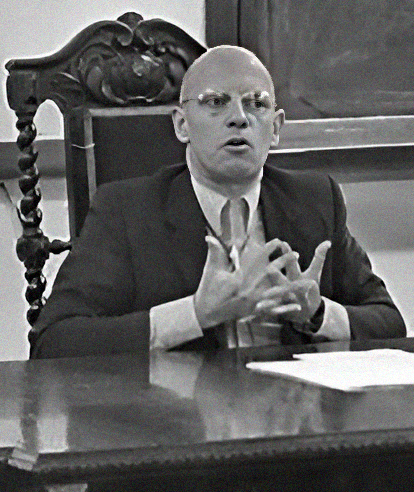We can learn much from those with whom we disagree, even on the most fundamental issues. Extrema se tangunt, goes the Latin proverb – extremes touch each other. Nietzsche is eminently quotable, and his nihilistic philosophy, when taken to its reductio ad absurdam, says much for the benefits of Christianity, as even the atheist Richard Dawkins is discovering.
Speaking of quotable, we may say the same of Michel Foucault, purported to be the most cited figure in the history of the humanities. His tragic life was cut short by complications from AIDS in 1984, but not before he produced a body of work – lectures, articles and his magnum opus, the two-volume, History of Sexuality – that has influenced, nay, even shaped out society ever since, as Sohrab Ahmari cogently explains:
One of Foucault’s key premises was that everything was about power. Following Lenin, it was who is doing what to whom. Oppression, repression, guilt, colonialism, equality, inclusion, exclusion, reparation – a world of force and submission.
Like most superficial theses – think Freud and sex – this can explain a number of things, but does not get down to the nub of the matter. Foucault just didn’t go far enough, and did not think deeply enough. Or perhaps he did – he certainly had the capacity – but was afraid of what he might find, or did find. Just as sex needs a further ‘why’ – as in, why are men and women attracted to each other, and what does this imply? – so too does power: Where do power and authority come from, and how should they be exercised?
These are the more intriguing, and more important, questions. We wrote of power and authority recently, and the reader may peruse those thoughts. But as far as whence power derives, well, we need not search far:
All authority in heaven and on earth has been given to me (Mt 28:18)
But God distributes a share of His own power in ways that seem mysterious from our perspective.
To the good, as today’s Gospel proclaims:
And he called to him his twelve disciples and gave them authority over unclean spirits, to cast them out, and to heal every disease and every infirmity (Mt 10:1)
And also to the bad:
And the devil took him up, and showed him all the kingdoms of the world in a moment of time, and said to him, “To you I will give all this authority and their glory; for it has been delivered to me, and I give it to whom I will. If you, then, will worship me, it shall all be yours.” (Lk 4:5-7)
And to most everyone else, wavering between the two:
You would have no power over me unless it had been given you from above (Jn 19:11)
We trust that good is far greater than evil, even if the latter seems to have the upper hand for a time, and half a time. Most of the world’s problems and conflicts are a result of seeking to instantiate perfect justice without Christ. Only at the end of time, when the Lord of all history returns – but not before then – will we see the power imbalances that so vexed Foucault, resolved, and perfect balance restored:
Behold, I am coming soon, bringing my recompense, to repay every one for what he has done. I am the Alpha and the Omega, the first and the last, the beginning and the end. (Rev 22:12-13)


